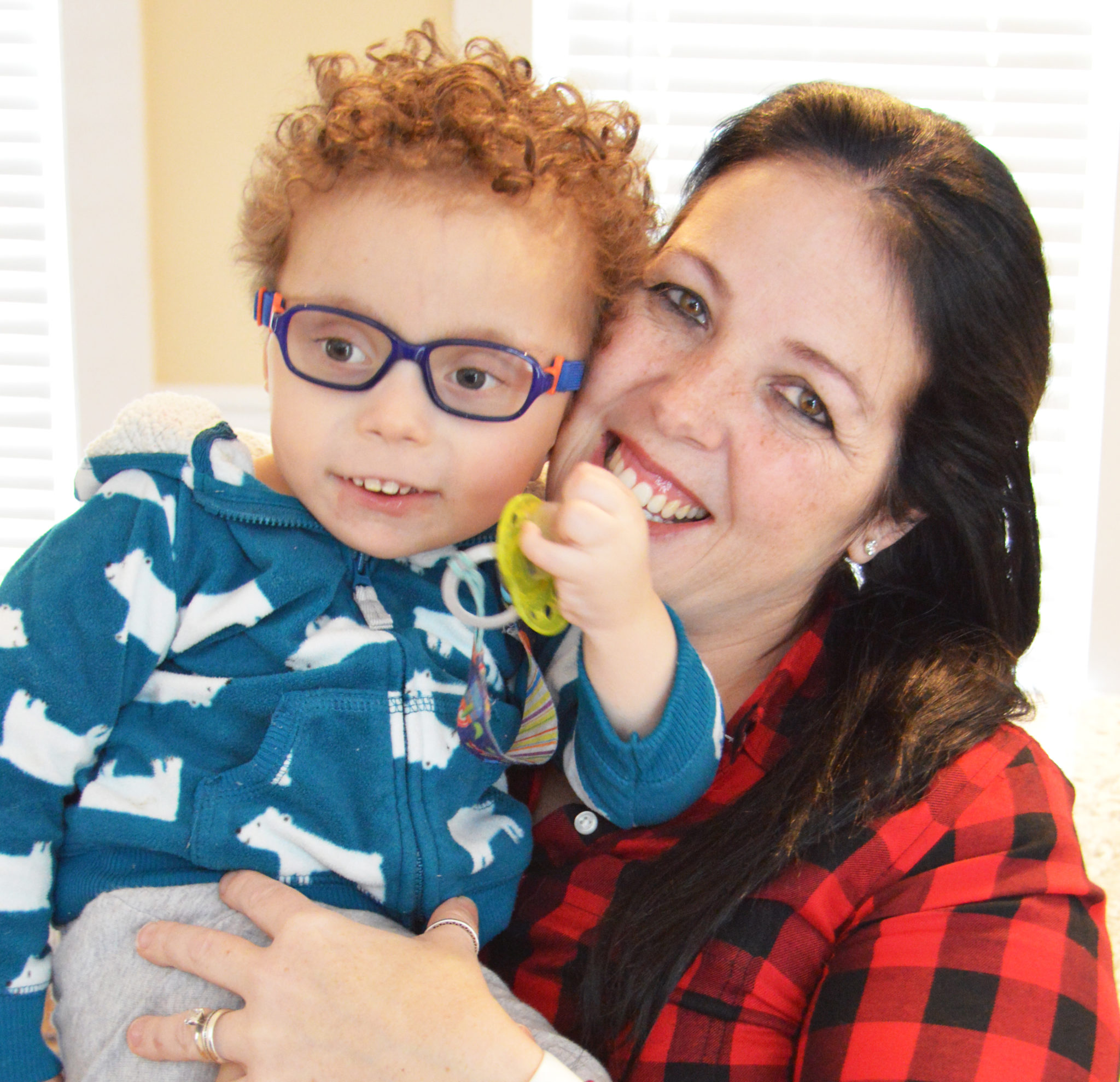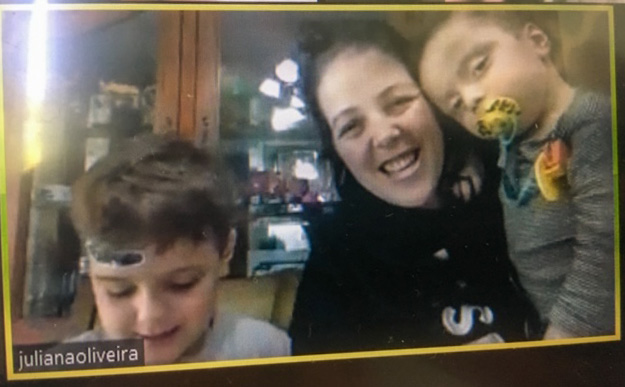The Oliveira family loves it when the HopeHealth PediPal (pediatric palliative care) team stops by their home.
It’s a bright winter day in January on the Oliveiras’ suburban street. Two of the family’s five children—a young girl and boy—press their foreheads against a windowpane and squeal when they see four women from HopeHealth walk up the front steps.
Inside are Juliana and George Oliveira, the parents of this close-knit, loving family. George cradles their youngest child, Josué, age 2, who has soft curls, blue eyeglasses and a tender smile.
Josué is the reason for HopeHealth’s visit. He was born with a rare chromosomal abnormality affecting his heart and connective tissue. Unable to speak, walk or feed himself, he requires round-the-clock care and frequent medical appointments.
It’s a lot to manage, Juliana explains, but she credits her strong faith in God for sending help. “HopeHealth is my family. I was in dark tunnel but now I see the light,” she says with tears in her eyes.
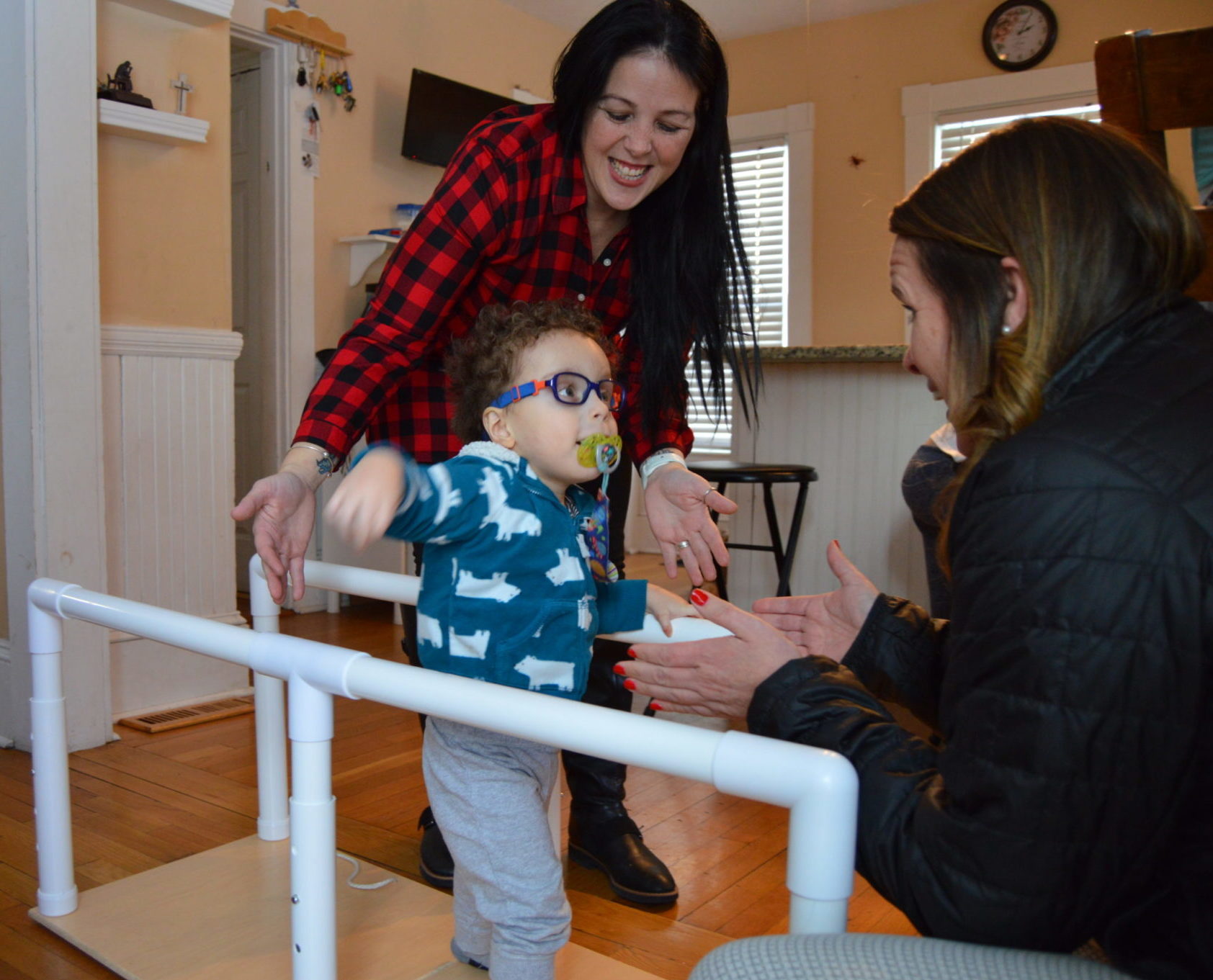
Palliative care for children
HopeHealth provides palliative care services to children with life-limiting illnesses or injuries in Massachusetts’ Plymouth, Bristol and Norfolk Counties. The program is funded through donations and a contract with Massachusetts Department of Public Health’s Pediatric Palliative Care (PediPal) Network.
Palliative care addresses a range of physical, emotional, social and spiritual needs. HopeHealth’s PediPal team includes nurses, social workers, therapists, chaplains and volunteers.
“We are there to enhance the quality of life for the child and family,” says Lindsay Coe, MSW, HopeHealth’s pediatric palliative program manager. “We help manage the chaos.”
Last year, HopeHealth cared for about 100 children with conditions ranging from birth defects to traumatic injuries. There is a wait list for service.
Josué receives nursing and massage therapy, and HopeHealth helps the rest of the family, too.
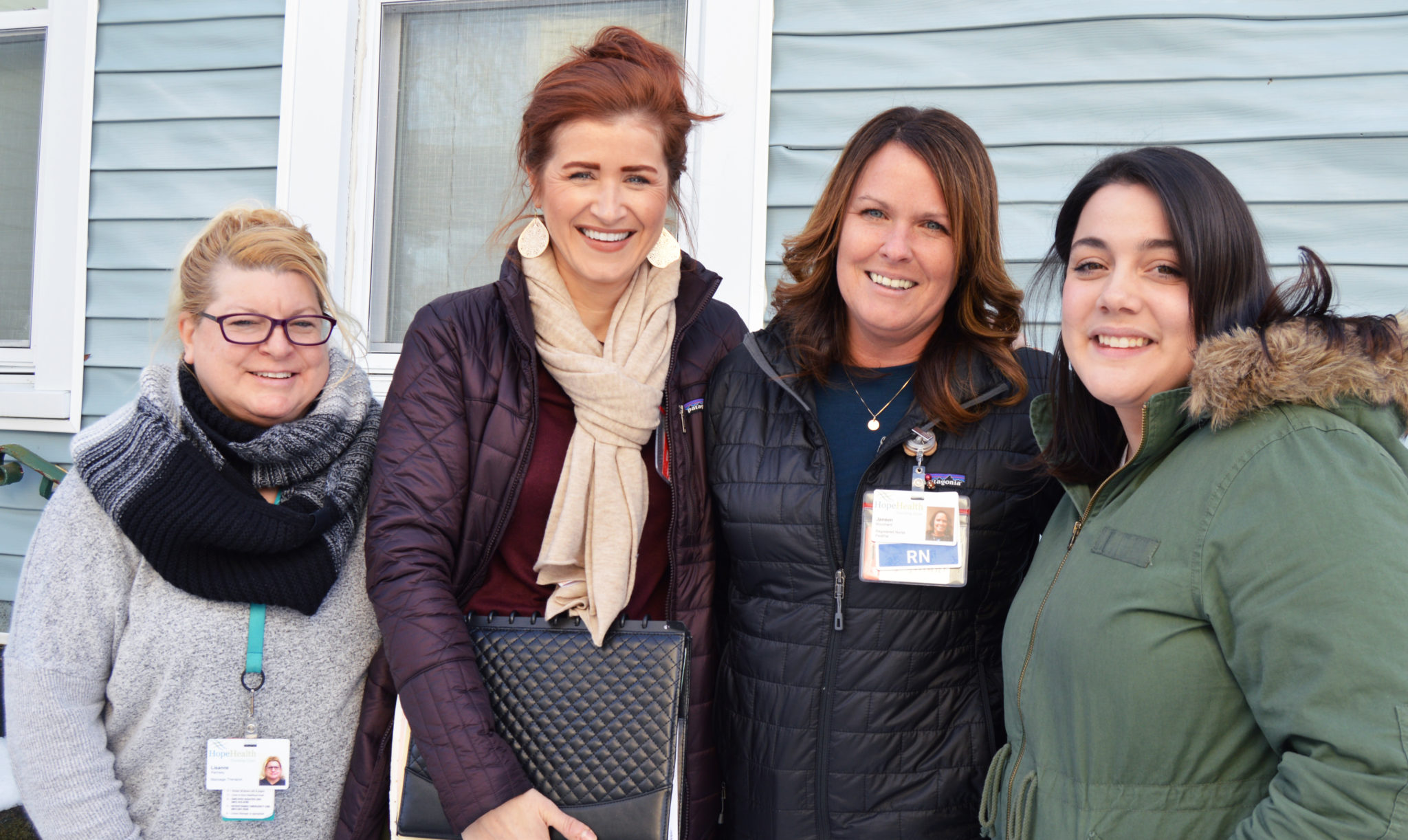
Support for mom and dad
Caring for a child with a serious health condition is a highly stressful, full-time job. Many parents have to stop working outside the home. “It’s a huge financial burden,” Lindsay says.
As a social worker, Lindsay offers Juliana emotional support and helps her identify resources to reimburse for medical expenses.
Adding to the ordeal are George’s own health problems. He is recovering from critical injuries suffered in a worksite construction accident that nearly took his life. Talking with HopeHealth’s chaplain has helped him cope.
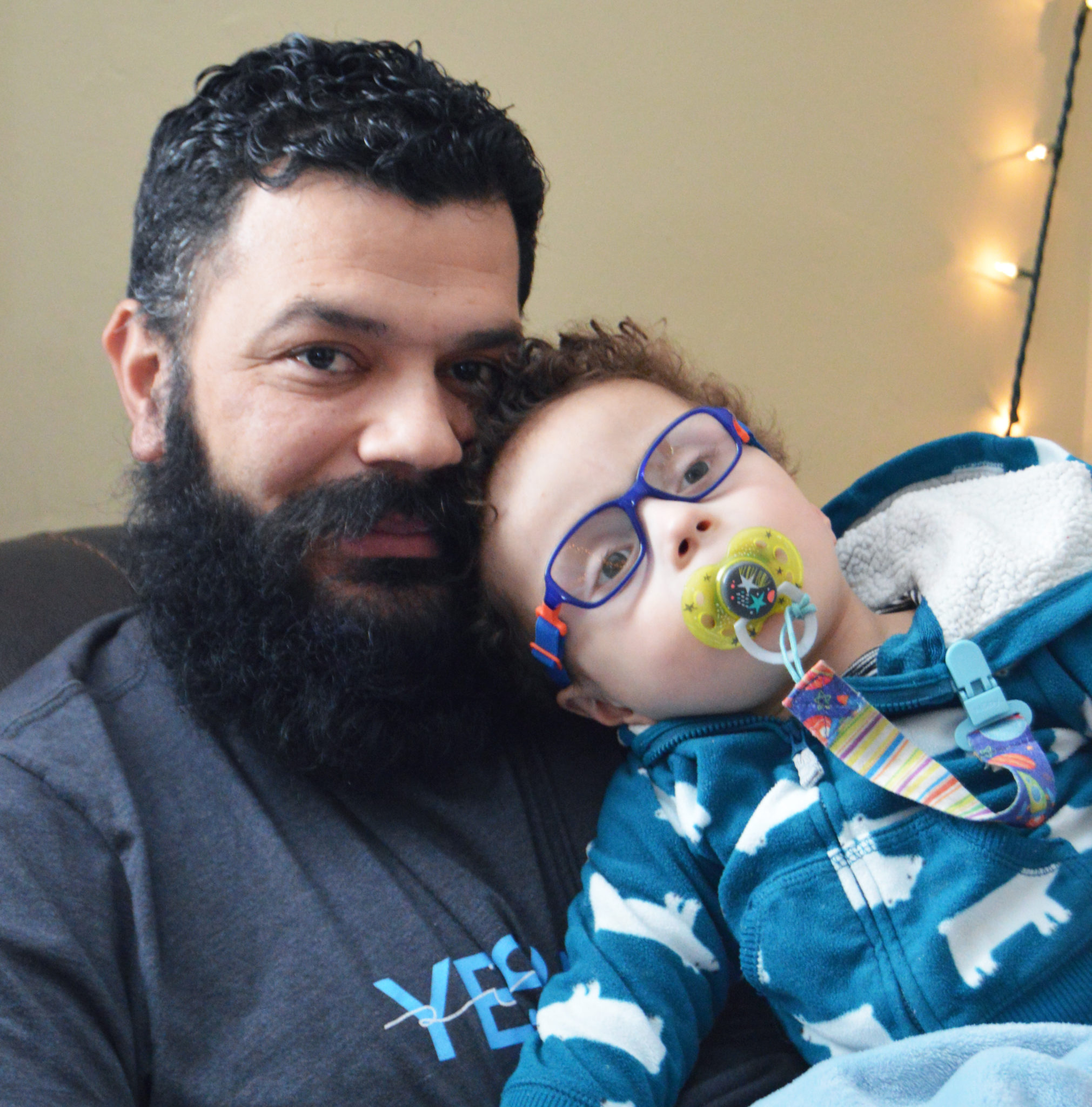
PediPal for siblings
There’s an unintentional side effect for parents with their hands full caring for a chronically ill child. Sometimes they don’t have enough time to meet their other children’s needs.
Jacob and Hadassa, those youngsters at the window, had been exhibiting attention-seeking behaviors because Josué takes up much of their parents’ time. They’re doing better, though, since working with HopeHealth’s child-life specialist Stephanie Kilday.
On this visit, Stephanie teaches Jacob and Hadassa the importance of hand-washing to keep Josué healthy. After reading a book about germs, they cover their hands in “germy” paint and watch it spread. It’s a silly, yucky good time.
In other families, Lindsay has cared for brothers and sisters diagnosed with post-traumatic stress disorder (PTSD). “Imagine waking up and your parents are gone because they had to take your sibling to the emergency room overnight,” Lindsay says.
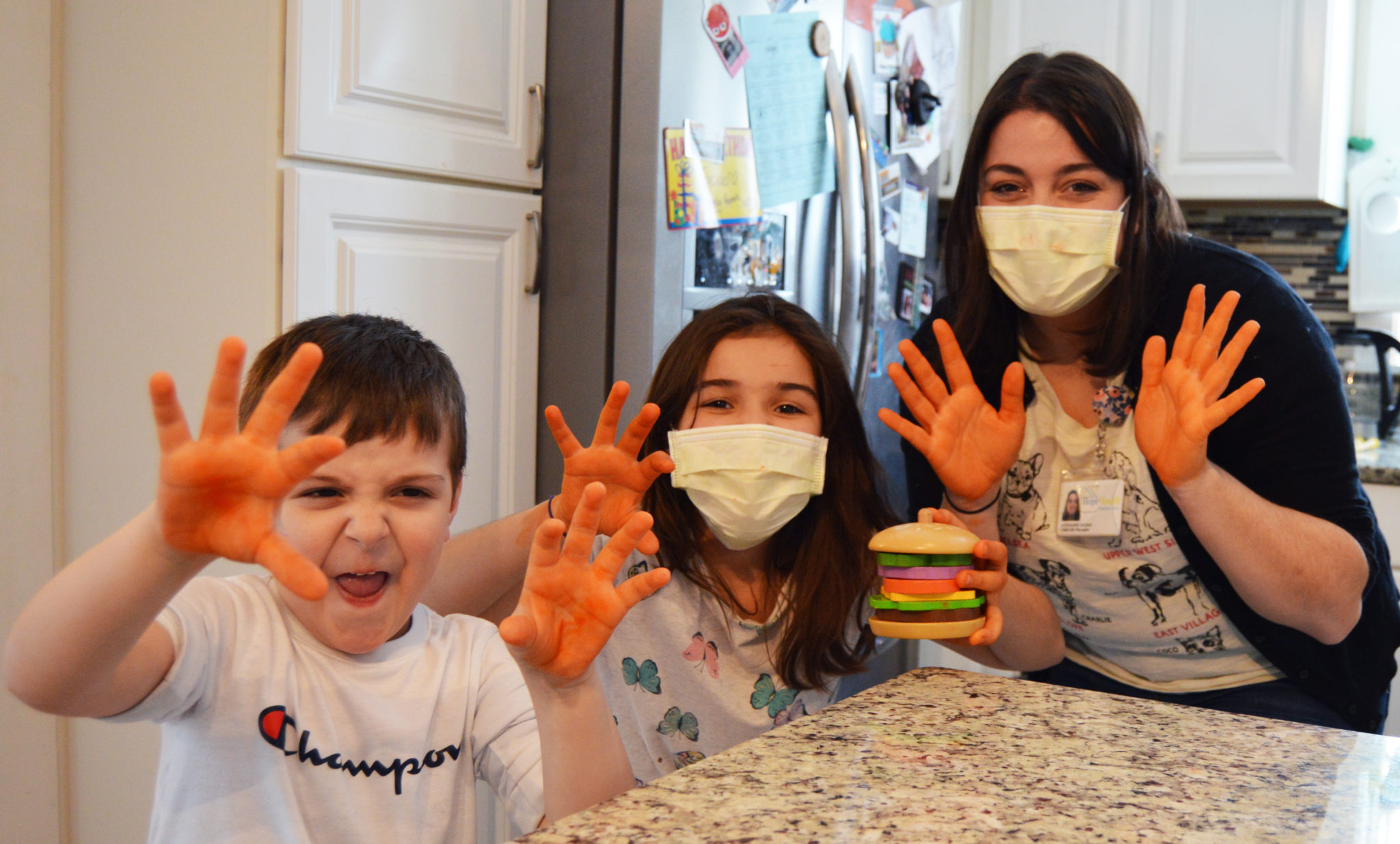
Family outings aren’t easy for families with high-needs children, so HopeHealth hosts special PediPal events like family sailing, “trunk-or-treating” and tulip picking. Juliana appreciates spending time with other people who know what she’s going through. “We don’t have to explain ourselves to anyone,” she says.
After completing their visit, the HopeHealth team hug the Oliveira children and say goodbye.
“It’s rewarding to make their lives a little easier,” Lindsay says.
June 2020 update: Even with the COVID-19 shutdown, the PediPal team is still in action! Stephanie meets with the Oliveiras each week through Zoom.

